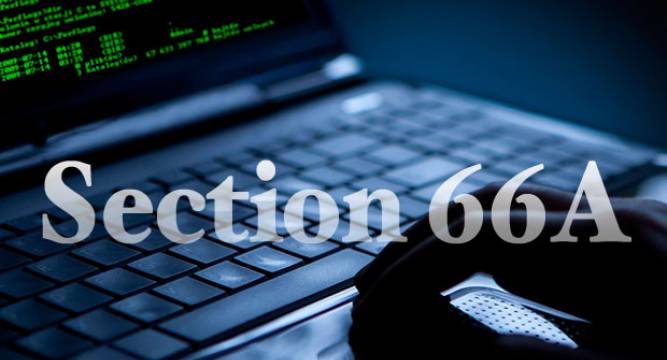CURRENT AFFAIRS
Get the most updated and recent current affair content on Padhaikaro.com
Section 66A Information Technology Act
- Integrity Education, Delhi
- 06, Jul 2021

Why in news: The Supreme Court termed the continued use of Section 66A of the Information Technology Act, 2000 as “a shocking state of affairs”
66A Punishment for sending offensive messages through communication service, etc.
Any person who sends, by means of a computer resource or a communication device,-
- (a) any information that is grossly offensive or has menacing character; or
- (b) any information which he knows to be false, but for the purpose of causing annoyance, inconvenience, danger, obstruction, insult, injury, criminal intimidation, enmity, hatred or ill will, persistently by making use of such computer resource or a communication device; or
- (c) any electronic mail or electronic mail message for the purpose of causing annoyance or inconvenience or to deceive or to mislead the addressee or recipient about the origin of such messages,
shall be punishable with imprisonment for a term which may extend to three years and with fine.
Supreme Court Judgement
- In Shreya Singhal v. Union of India, 2015 case: SC struck down Section 66A for “being violative of Article 19(1)(a) and not saved under Article 19(2).”
- SC expanded the contours of free speech to the Internet, and termed Section 66A as “open-ended and unconstitutionally vague”.
- Article 19(1)(a) gives people the right to speech and expression whereas 19(2) accords the state the power to impose “reasonable restrictions” on exercise of this right.